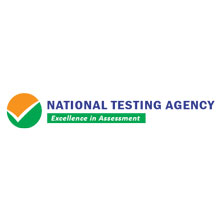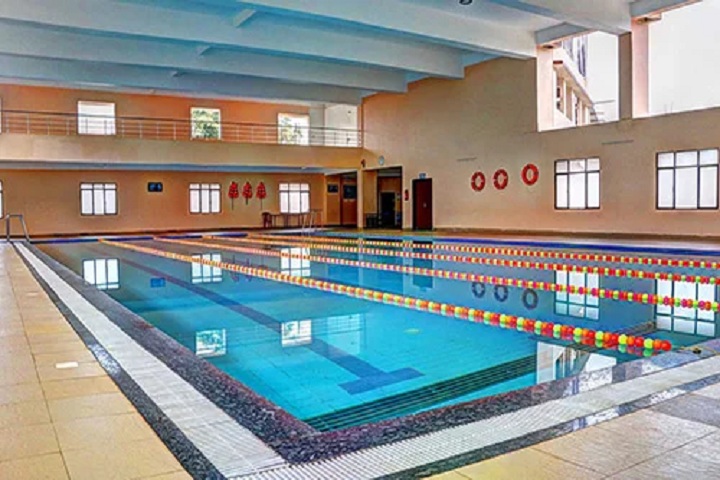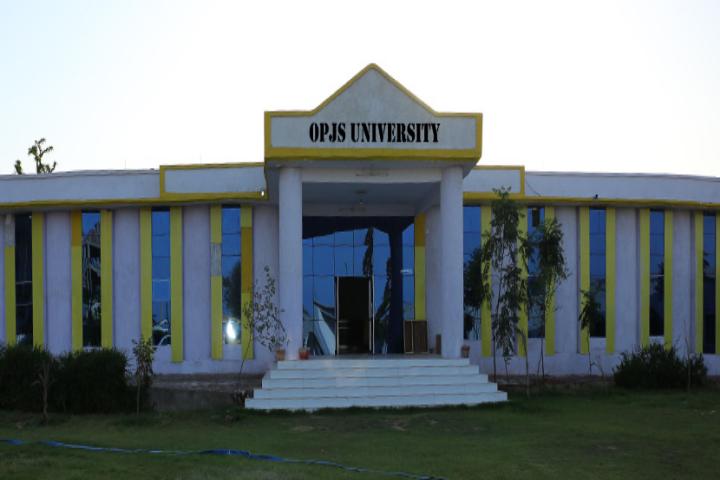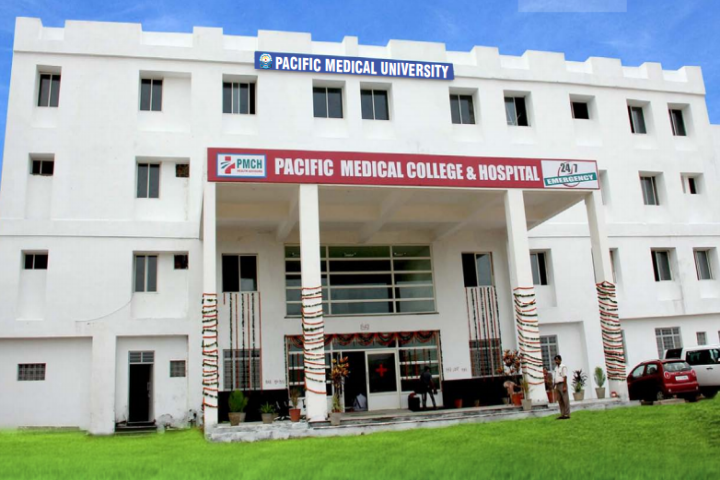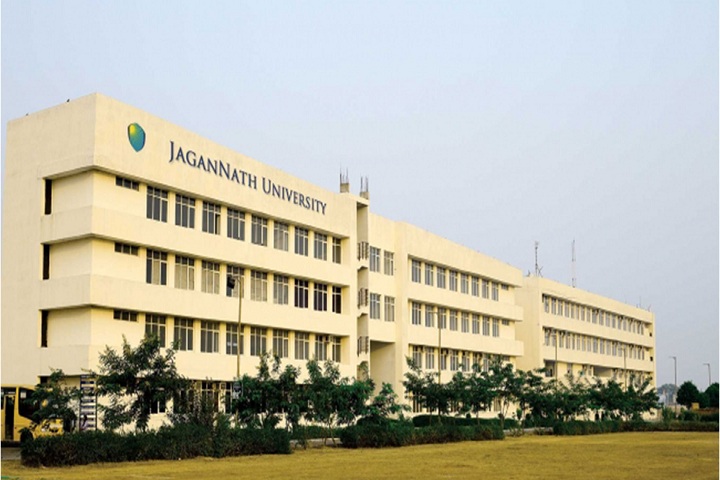
Paramedical Sciences Course Details - Fees, Subjects, Syllabus, Duration, Eligibility, Career Scope
Degrees offered: B.Sc.(Hons), B.Sc., Diploma, M.Sc., B.Voc.
What is Paramedical Sciences
Paramedical and Allied Science is a multidisciplinary field that supports core medical services by training professionals in diagnostics, therapy, rehabilitation, and patient care. These courses are crucial in bridging the gap between technology and medicine, ensuring efficient healthcare delivery in both clinical and non-clinical settings.
Courses in Paramedical and Allied Science are available at both undergraduate and postgraduate levels. Students can choose from diploma programmes, BSc, B.Voc, and B.Optom at the undergraduate (UG) level, and MSc, M.Optom, PG Diplomas, or PhDs at the postgraduate (PG) level, depending on their area of interest and specialisation.
The field offers numerous career paths in diagnostics labs, hospitals, public health, and research. From operating medical equipment to analysing samples, professionals in Paramedical and Allied Science play an essential role in improving patient outcomes and strengthening healthcare systems.
Paramedical and Allied Science Highlights
Paramedical Science provides a diverse range of undergraduate and postgraduate programmes aimed at training professionals in allied health services. Admissions are typically merit-based or through entrance exams, depending on the institute. The field offers strong job prospects across hospitals, diagnostic centres, and emergency services. Here are the key highlights:
Particulars | Values |
Branch Name | Paramedical and Allied Science |
Degree | UG: BSc, Diploma, B.Voc, B.Optom |
Duration | UG: 2–4 years |
Eligibility | UG: 10+2 in Science (Physics, Chemistry, Biology/Mathematics) with a minimum of 50 per cent marks |
Admission Process | Merit-based or Entrance Examination |
Entrance Exams | CUET UG, NEET, AIIMS, INI CET |
Course Fees | Rs. 10,000 to Rs. 8 lakhs |
Top Colleges | AIIMS Delhi, Parul University, Dr DY Patil, RUHS Jaipur, PGIMS Rohtak |
Career Options | Medical Laboratory Technologist, Radiology Technologist, Operation Theatre Technician, Physiotherapist |
Average Salary | Rs. 3 to 6 LPA |
Recruiting Companies | Apollo Hospitals, Fortis Healthcare, Max Healthcare, Dr Lal PathLabs, Medanta |
Top Private Paramedical and Allied Science Colleges in India
Several reputed private institutions across the country offer Paramedical and Allied Science courses at both undergraduate and postgraduate levels. These colleges provide state-of-the-art laboratories, experienced faculty, and hands-on clinical training to ensure students are industry-ready. Fee structures in private colleges are generally higher than those in government institutions. Here are some of the top private colleges offering Paramedical courses in India.
Top Colleges | Fees |
Rs. 2.36 Lakhs | |
Rs. 1.71 Lakhs | |
Rs. 4.08 Lakhs | |
Rs. 3.11 Lakhs | |
Rs. 1.68 Lakhs | |
Rs. 2.55 Lakhs | |
Rs. 76,000 | |
Rs. 4.20 Lakhs | |
Rs. 6.42 Lakhs | |
Rs. 30,000 |
Note: The fee structure provided above can be for any particular Paramedical and Allied Science Course (Diploma/UG & PG Degree).
Top Government Paramedical and Allied Science Colleges in India
Government colleges offering Paramedical and Allied Science courses are known for their affordable fee structures, quality education, and strong clinical training. These institutions are often affiliated with top government hospitals, providing students with a comprehensive hands-on experience. Admission is generally merit or entrance-based, and competition for seats remains high due to lower tuition fees and high return on investment.
Top Colleges | Fees |
Rs. 49,580 | |
Rs. 1.99 Lakhs | |
Rs. 1.31 Lakhs | |
Rs. 4.52 Lakhs | |
Rs. 3,080 | |
Rs. 70,000 | |
Rs. 40,000 | |
Rs. 64,500 | |
Rs. 92,000 | |
Rs. 16,500 |
Specialisations
Paramedical and Allied Science offers a wide range of specialisations tailored to meet the evolving needs of the healthcare industry. These fields focus on diagnostic, therapeutic, and critical care services, enabling students to gain hands-on training and industry-relevant knowledge. Below are some of the popular specialisations:
Anaesthesia Technology | Emergency Medical Technology |
Cardiac Perfusion Technology | Medical Radiology and Imaging Technology |
Radiotherapy Technology | |
Diabetes Science | Intensive Care Technology |
Dialysis Therapy | |
Echocardiography Technology | Neuro Electro Physiology |
Operation Theatre Technology | Respiratory Therapy |
Audiology and Speech Language Pathology | |
Physician Associate | - |
Eligibility Criteria (UG & PG) of Paramedical Sciences
To get admission into Paramedical and Allied Science courses, candidates must meet specific academic qualifications. While the eligibility criteria vary across colleges and courses, most institutions follow common academic guidelines for both undergraduate and postgraduate levels. Below are the details for UG and PG admissions in this field.
For Undergraduates:
Aspiring candidates must have completed their 10+2 education in the Science stream with core subjects such as Physics, Chemistry, and Biology.
A minimum aggregate score of 45 to 50 per cent is typically required for admission; relaxation for reserved categories may apply.
Top Entrance Exams for UG Courses
Admission to undergraduate paramedical courses is usually conducted through national or state-level entrance examinations. These tests assess candidates on subjects studied in the 10+2 science stream and play a crucial role in the selection process. Here are some UG entrance exams considered by various institutes across India.
Exam Name | Level | Conducting Body | Exam Schedule |
National | NTA | ||
National | NTA | ||
National | AIIMS | - |
For Postgraduates:
Candidates applying for postgraduate paramedical programmes must hold a relevant undergraduate degree in paramedical and allied sciences or life sciences.
A minimum of 50 per cent aggregate is typically required, with admission based on merit or entrance exam scores, depending on the college.
Top Entrance Exams for PG Courses
Admission to postgraduate paramedical and allied courses is typically based on national-level entrance exams that evaluate a candidate’s subject knowledge and academic aptitude. These exams are essential for securing seats in top institutions offering PG programmes in allied health sciences. Here are some PG entrance exams considered by leading universities and colleges.
Exam Name | Level | Conducting Body | Exam Schedule |
National | NTA | ||
National | NTA | ||
National | AIIMS |
College Predictors VIEW ALL
Scope of Paramedical Sciences in India and Abroad
A career in Paramedical and Allied Science requires a variety of skills, including technical expertise, critical thinking, and patient care. These fields cover a wide range of healthcare services such as laboratory diagnostics, radiology, physiotherapy, anaesthesia technology, and more, making them integral to modern medical systems. Students pursuing these courses gain hands-on training in both hospital and clinical settings, ensuring they are job-ready upon graduation.
There is a growing demand for skilled paramedical professionals across India in both government and private healthcare institutions. Opportunities are also available in research labs, diagnostic centres, rehabilitation clinics, and emergency care units. Public sector units (PSUs), railway hospitals, and armed forces medical services also hire allied healthcare professionals.
Apart from employment, many paramedical graduates venture into private practice, run diagnostic labs, or work with NGOs and global health missions. There is also significant scope for career growth and global opportunities, especially in countries like Canada, the UK, Australia, and Middle Eastern nations, where qualified allied health professionals are in high demand.
Course Fees Paramedical Sciences
| Minimum Fees | Maximum Fees | |||
|---|---|---|---|---|
| Private | Government | Private | Government | |
| UG | ||||
| PG | ||||
| DOCTORAL | ||||
| DIPLOMA | ||||
Course Subjects
The syllabus for Paramedical and Allied Science courses differs based on the specialisation and degree level. These programmes aim to build both theoretical and practical knowledge essential for roles in diagnostics, patient care, and healthcare management. Here are the UG and PG course syllabi for reference.
For UG Courses
The undergraduate syllabus in paramedical and allied science varies by specialisation. The following curriculum outlines the core and advanced topics covered under the BSc in Cardiac Care Technology programme, focusing on both theoretical and practical skills in cardiac healthcare. This syllabus is from Sunrise University.
Semester 1 | Semester 2 |
English | General Pathology |
Anatomy | Microbiology |
Physiology | Pharmacology |
Basic Biochemistry | Psychology |
Environmental Science | Introduction to Computer |
Practicals | Practicals |
Semester 3 | Semester 4 |
Applied Pathology | Cardiac Evaluation and Therapies -I |
Applied Microbiology | Basics Cardiac evaluation and therapies |
Basic Cardiac Care Technology | Basics of Medical Disorders |
Introduction to Biomedical Instrumentation | Biostatistics and Research Methodology |
Health care | Constitution of India |
Practicals | Practicals |
Semester 5 | Semester 6 |
Patient Care and Basic Nursing | Advanced Cardiac Care Technology -II |
Cardiac Evaluation and Therapies -II | Cardiac Evaluation and Therapies -III |
Advanced Cardiac Care Technology -I | Applied Coronary Angiography and Echocardiography |
Biomedical Engineering Devices for Cardiac Care Technology | Basic Intensive Care |
Medical Ethics | Hospital Management |
Practicals | Practicals |
PG Course
The postgraduate syllabus in paramedical and allied science covers advanced diagnostic and laboratory techniques, essential for clinical and research roles. This MSc in Medical Laboratory Technology curriculum includes topics like molecular biology, immunohaematology, cytogenetics, and clinical training. This syllabus is from Teerthanker Mahaveer University.
Semester 1 | Semester 2 |
Molecular Biology and Bioinformatics | Endocrinology and Tumour Markers |
Immunohaematology & Blood Banking Techniques-I | Immunohaematology & Blood Banking Techniques-II |
Principles of Immunology | Biostatistics & Research Methodology |
Practical: Molecular Biology and Bioinformatics | Principles of Laboratory Management, Automation & Quality Assurance |
Practical: Immunohaematology & Blood Banking Techniques-I | Practical: Endocrinology and Tumour Markers |
Practical: Principles of Immunology | Practical: Immunohaematology & Blood Banking Techniques-II |
Clinical Posting | Clinical Training |
Semester 3 | Semester 4 |
Advance Instrumentation and Maintenance | Education and Teaching Methodology |
Cytogenetics & Molecular Diagnosis | Dissertation |
General Pathology | Practical: Education and Teaching Methodology |
Practical: Advance Instrumentation and Maintenance | - |
Practical: Cytogenetics & Molecular Diagnosis | - |
Clinical Training | - |
Careers in Paramedical Sciences
In today’s healthcare ecosystem, Paramedical and Allied Health Science professionals play a crucial role in supporting diagnosis, treatment, and patient recovery. From medical imaging and laboratory testing to physiotherapy and emergency care, these fields act as the backbone of clinical services. The demand for such professionals is only increasing with the rising population, growing lifestyle-related ailments, and expanding healthcare infrastructure.
The fast-paced lifestyles, increasing disease complexity, and the focus on quality healthcare services have led to an urgent need for skilled allied health workers. These are not just assistants; they are experts in their own right, handling life-saving equipment, conducting crucial tests, and supporting specialised treatment plans.
Pursuing a career in Paramedical and Allied Science is not only noble but also future-proof. It promises stability, respect, and the satisfaction of making a tangible difference in people’s lives every day. Whether you are managing diagnostic tools, responding in emergencies, or assisting in rehabilitation, this path offers countless opportunities for growth and service.
Upcoming trends
The field of Paramedical and Allied Science is developing rapidly with the integration of new technologies and interdisciplinary practices. From diagnostics to patient care and rehabilitation, advancements are shaping how professionals deliver healthcare services. Some of the upcoming trends in this field include:
AI-Powered Diagnostics and Imaging
Telehealth and Remote Patient Monitoring
Wearable Health Devices and Sensors
3D Printing in Prosthetics and Implants
Robotics in Physiotherapy and Surgery Assistance
Precision and Personalised Medicine
Mobile Health Apps and Digital Therapeutics
Point-of-Care Testing (POCT)
Genomics and Molecular Diagnostics
Augmented and Virtual Reality for Skill Training
Job Profiles and Top Recruiters
A degree in Paramedical and Allied Science opens up diverse employment opportunities across clinical, diagnostic, and therapeutic domains. Graduates can work in hospitals, research labs, emergency units, rehabilitation centres, and more, depending on their specialisation. Here are some of the common job roles:
Job Profiles | Description |
Medical Lab Technicians perform diagnostic tests and laboratory analyses to help detect, diagnose, and treat diseases. They work with blood, tissue, and other bodily samples using advanced medical equipment and techniques. | |
Radiology Technicians | Radiology Technicians operate imaging equipment such as X-ray, MRI, and CT scanners for diagnostic purposes. They assist radiologists in interpreting images and maintaining imaging systems. |
Operation Theatre Technologists | Operation Theatre Technologists prepare and maintain sterile surgical environments and assist during surgeries. They ensure all instruments and equipment are properly sterilised and functional. |
Physiotherapists assess and treat physical disabilities, injuries, or disorders through exercises and manual therapy. They help patients restore mobility and manage pain effectively. | |
Dialysis Technicians | Dialysis Technicians perform haemodialysis procedures for patients suffering from kidney failure. They monitor machines and patient vitals during the dialysis process. |
Speech Therapists evaluate and treat individuals with communication and swallowing disorders. They design therapy plans to improve speech, language, and cognitive-communication skills. | |
Dietitians develop diet plans based on patients' health conditions and nutritional needs. They educate individuals on healthy eating habits and disease-specific nutrition. |
Top Recruiters
- All India Institute of Medical Sciences, multiple cities
- Fortis Healthcare Ltd.
- Apollo Hospitals Group
- Medanta – The Medicity
- Dr. Lal PathLabs
- SRL Diagnostics
- Max Healthcare
- Indian Council of Medical Research (ICMR)
- National Health Mission (NHM)
- Manipal Hospitals
Average Salary
The salary in Paramedical and Allied Science depends on various factors such as job profile, experience level, sector (private or government), and location. Entry-level professionals start with moderate packages, but with specialisation and experience, earnings improve significantly. The table below provides approximate average annual salaries for key roles in this field.
Job Profiles | Average Annual Salary |
Medical Lab Technician | Rs. 2.6 LPA |
Radiology Technologists | Rs. 2.8 LPA |
Operation Theatre Technicians | Rs. 2.9 LPA |
Physiotherapists | Rs. 3.3 LPA |
Clinical Research Associates | Rs. 4.6 LPA |
Dieticians | Rs. 2.9 LPA |
Source: AmbitionBox
Note: Salary may vary depending on various circumstances.
Required Skillset for Paramedical Sciences
To build a successful career in Paramedical and Allied Science, academic qualifications alone are not enough. These fields demand a strong blend of technical know-how, a patient-centric approach, and continuous learning. Depending on the specialisation, be it lab technology, radiology, physiotherapy, or emergency care, certain core competencies are crucial. Some essential skills include:
Attention to detail and accuracy in diagnostics or patient care.
In-depth understanding of human anatomy, physiology, and medical procedures.
Technical proficiency in operating medical equipment and instruments.
Strong interpersonal and communication skills for interacting with patients and healthcare teams.
Ability to work efficiently under pressure, especially in emergencies.
Organisational and time-management skills for handling multiple tasks.
Problem-solving and analytical thinking in clinical or lab-based settings.
Commitment to ethical medical practices and patient confidentiality.
Willingness to keep up with medical advancements and new healthcare technologies.
Course Curriculum for Paramedical Sciences
Paramedical and Allied Science courses at both undergraduate and postgraduate levels are designed to build a strong foundation in medical sciences, clinical methods, and practical applications. Whether students specialise in radiology, laboratory technology, physiotherapy, or cardiac care, the curriculum aims to prepare them with:
A comprehensive understanding of the human body systems relevant to their specialisation and how diseases affect them.
The ability to perform diagnostics, procedures, or therapeutic interventions under professional supervision.
Skills to work efficiently in clinical, laboratory, or emergency settings with a patient-centred approach.
Knowledge of the role of environmental, genetic, and lifestyle factors in the development and management of various health conditions.
Capability to integrate preventive, promotive, curative, and rehabilitative healthcare techniques in practice.
Exposure to healthcare challenges in rural and under-served areas with limited resources.
An understanding of ongoing research, innovations, and best practices in the healthcare ecosystem.
Popular Paramedical Sciences Entrance Exams in India
Frequently Asked Questions (FAQs)
Question: What are some of the top recruiters for paramedical and allied science graduates?
Answer :
Reputed names include AIIMS, Fortis Healthcare, SIMS Healthcare, and Rotary Eye Hospitals, among others, in both the public and private healthcare sectors.
Question: Are there job opportunities after a diploma in paramedical sciences?
Answer :
Yes, Diploma holders can work as technicians, assistants, or support staff in hospitals, diagnostic labs, and emergency departments, with scope to upskill further.
Question: What skills are important for a successful career in this field?
Answer :
Key skills include clinical knowledge, attention to detail, communication, teamwork, technical proficiency, and adaptability to new healthcare technologies.
Question: Is there a good career scope for paramedical graduates abroad?
Answer :
Yes, countries like the UK, USA, Australia, and Gulf nations offer strong career prospects, especially for trained lab technologists, radiographers, and physiotherapists.
Question: What are some of the top specialisations in allied health science?
Answer :
Popular specialisations include Medical Lab Technology, Cardiac Care Technology, Radiology, Anaesthesia Technology, Physiotherapy, and Optometry.
Question: Can I pursue paramedical and allied science courses without NEET?
Answer :
Yes, many UG and PG programmes in this field accept admissions through exams like CUET or institute-level tests. NEET is not mandatory for most courses.
Question: What do paramedical and allied science courses prepare you for?
Answer :
These courses prepare students for crucial roles in patient diagnosis, treatment support, and healthcare services. Graduates work alongside doctors, handling specialised medical equipment and assisting in clinical procedures.



